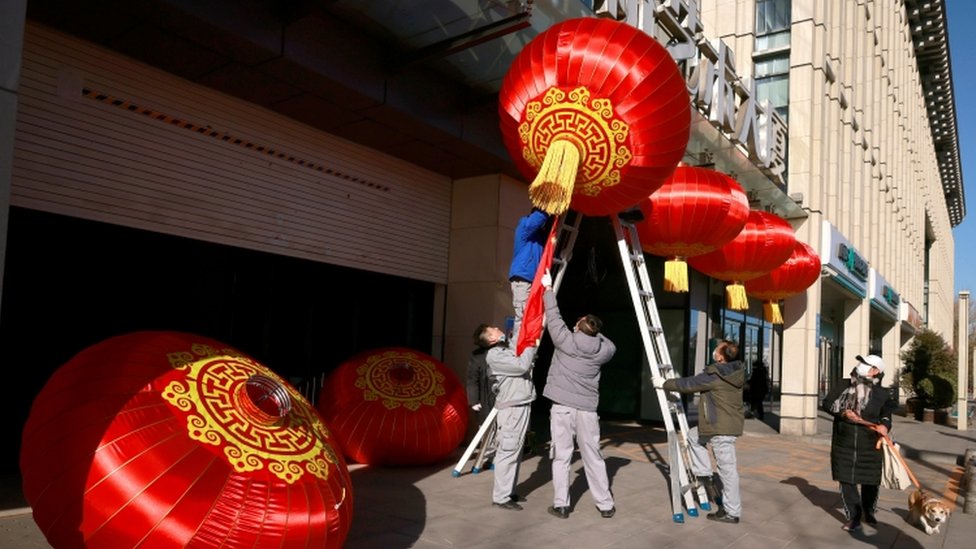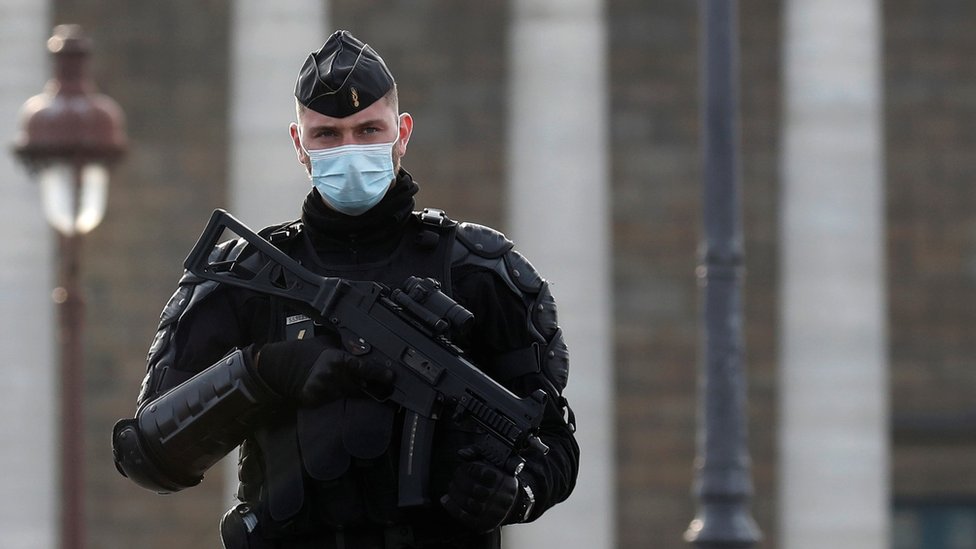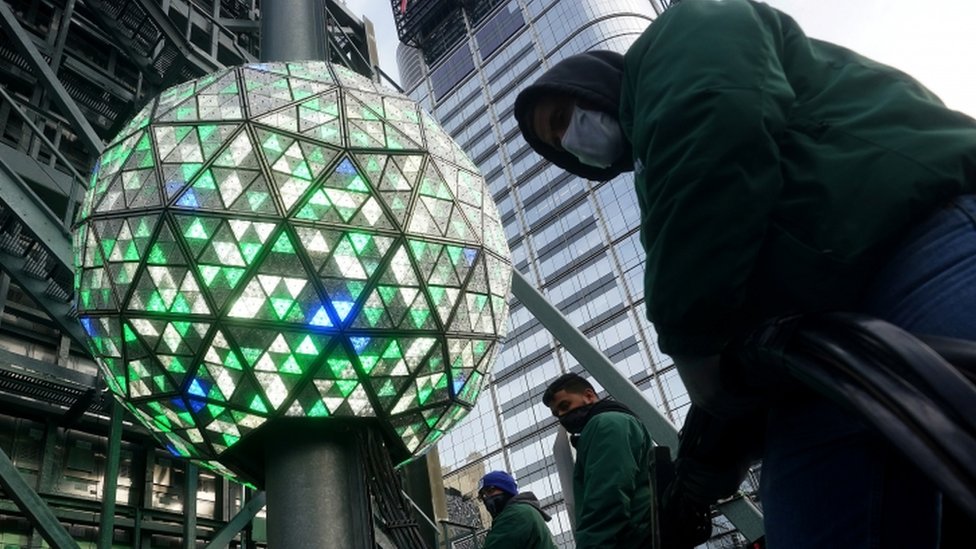This article is more than
5 year old
Fireworks displays and other public gatherings have been cancelled from Sydney to New York.
Festivities are being particularly muted in Europe, amid fears over a new more contagious strain of the disease.
France has mobilised 100,000 police to break up New Year's Eve parties and enforce a night-time curfew.
More than 1.8m people have died with the virus across the world since the start of the pandemic a year ago. More than 81m cases have been reported.
One of the first nations to ring in the New Year is Australia. The Sydney fireworks display is going ahead, but crowds were not allowed to gather on the city's harbour to enjoy it.
"We don't want to create any super-spreading events on New Year's Eve," New South Wales premier Gladys Berejiklian said.
Most Sydney residents will simply watch the pyrotechnics on TV at home, where gatherings are limited to five guests, the BBC's Phil Mercer in the city says.

In China, the annual New Year light show in the capital Beijing has been called off. Celebrations are being scaled down in cities across the country.
Japan has cancelled a traditional New Year event at which Emperor Naruhito and other imperial family members were to greet people.
In India, Delhi and several other cities have imposed a night curfew and other restrictions to prevent large New Year gatherings.
However in New Zealand, where a strict lockdown and border closures have all but eliminated Covid, New Year celebrations were held as usual.
In France, the government has ordered a visible security presence in urban areas from 20:00 on Thursday, when the curfew begins. In Paris half of the metro lines will be closed in the evening.
France has had two lockdowns and bars, restaurants and cultural attractions will remain shut into the new year.

In England - where the new coronavirus strain is spreading fast and 20 million people in the worst-affected regions are forced to stay at home - UK Prime Minister Boris Johnson urged people to follow the rules.
"That means not meeting up with friends or family indoors, unless they're in the same household or support bubble, and avoiding large gatherings of any kind," he said on Wednesday.
The Metropolitan Police issued a warning to potential revellers in London to "celebrate the new year in the comfort of their own homes".
Ireland will move to its highest level of restrictions on Thursday, banning all household visits, closing all non-essential retail and limiting travel to 5km (three miles).
Germany is currently under lockdown until 10 January. The government has banned the sale of fireworks and placed tight restrictions on the number of people who can gather in public.
Health Minister Jens Spahn said the country would have the "quietest New Year's Eve" in living memory.
The Netherlands is also under a lockdown, which is set to last until 19 January. Its usual countdown will take place behind closed doors at a football stadium in Amsterdam.
Turkey will begin a four-day-long lockdown on New Year's Eve.

In the US officials have placed restrictions on festivities in many states and cities. In New York the illuminated Times Square Ball will be dropped during the traditional countdown to midnight, but the area will not be open to the public.
Fireworks have been cancelled in cities including San Francisco and Las Vegas.